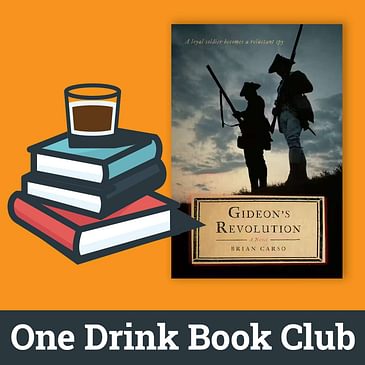In this episode, Jamey hosts author Brian Carso to discuss his new book Gideon's Revolution. Gideon’s Revolution is a historical fiction about a soldier in the Revolutionary War who is tasked with capturing Benedict Arnold and bringing him back to George Washington so he could be put on trial for treason. This episode includes a recipe for a cocktail popular during the late 1700's called the Rattle Skull.




